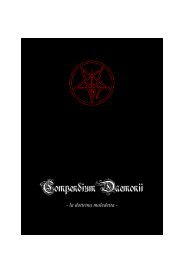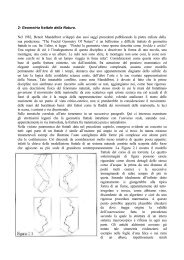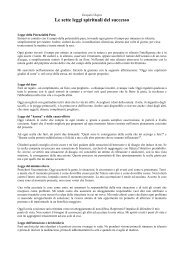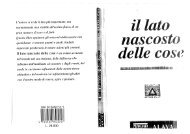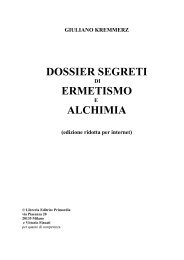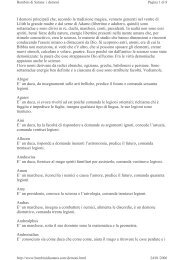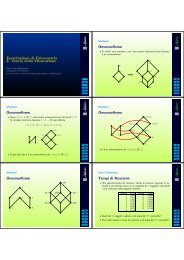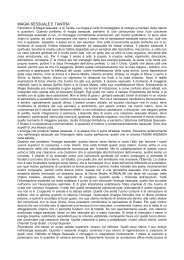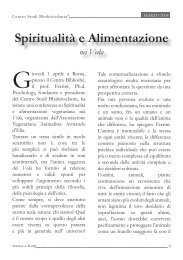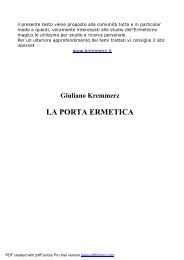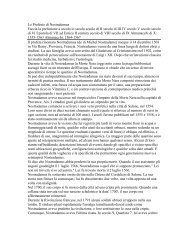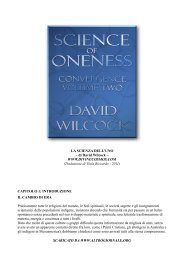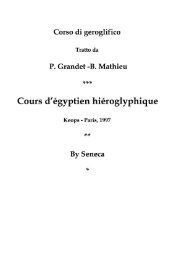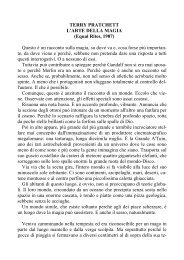252 ~ NOTESin hospital ward', Daily Telegraph, 30 September 1997. Those held included ChristianeAmanpourofCNN.17. Taliban leaders alluded to these feelings as early as July in conversations withme in Kabul. In Pakistan, Maulanas Fazlur Rehman and Samiul Haq, leaders ofseparate factions of the Jamiat-e-UZema Islam which backed the Taliban, said thatthe UN was a nest of spies and anti-Islam and that they had asked Mullah Omarto kick out the UN agencies.18. The six neighbours were Pakistan, Iran, Turkmenistan, Uzbekistan, Tajikistanand China.19. AFP, 'UN Chief slams outside forces for fuelling Afghan conflict', 9 November1997-20. Report of the Secretary General, 'The situation in Afghanistan and itsimplications for international peace and security', 14 November 1997.Chapter 51. Mousavi, Sayed Askar, The Hazaras of Afghanistan, an Historical, Cultural, Economicand Political Study, Curzon <strong>Press</strong>, London 1998. This is the only recent workon the Hazaras, who remain little known outside Afghanistan.2. Dr Rahi gave me a sheaf of her Dari poems when I was in the Hazarajat inDecember 1997.1 am grateful to UN officials for the translation.3. Interview with Lakhdar Brahimi, 8 April 1997.4. Crossete, Barbara, 'UN's impatience grows over Afghan restrictions on Aidworkers', the New York Times, 14 July 1998.5. AFP, 'Taliban reject warnings of aid pull-out', 16 July 1998.6. Interviews with Pakistani officials and foreign diplomats in Islamabad, March1998. See also Rashid, Ahmed 'Massive arms supplies reach all Afghan factions',the Nation, 13 March 1998.7. Winchester, Michael, 'Ethnic cleansing in Afghanistan', Asiaweek, 6 November1998.8. Interviews with survivors who eventually escaped to Pakistan, conducted bythe UNHCR. Private report by the UNHCR sent to the UN Secretary General.9. Halal is the ritual Islamic way of killing an animal for meat by slitting itsthroat so that it bleeds.10. Human Rights Watch Report, 'Afghanistan, the massacre in Mazar-e-Sharif',November 1998.11. Human Rights Watch Report, as above.12. Human Rights Watch Report, as above.13. Interviews with Pakistani diplomats and intelligence officials, and Iranian andTurkmen diplomats, Ashkhabad and Islamabad, August 1998.14. Personal communication by an international official who interviewed inmatesof Kandahar jail.15. Reuters, 'Taliban blame Clinton scam for attacks', 21 August 1998.16. Personal communication from Bamiyan.!NOTES ~ 25317. UN Security Council Report, 8 December 1998.18. Boustany, Nora, 'Busy are the peacemakers', the Washington Post, 10 January1998.19. UN Security Council Report, 9 December 1998.Chapter 61. The four schools of Islamic law which evolved in the ninth century wereHanafi, Maliki, Shafi and Hanbali. Hanafi was based on customary practices andthe easiest to follow.2. The syllabi of these madrassas are learning the Koran by heart, interpretatingthe Koran, Islamic jurisprudence, Islamic law, life and sayings of the ProphetMohammed, spreading the word of God, Islamic philosophy, Arabic language andmathematics.3. Magnus, Ralph and Naby, Eden, Afghanistan, Mullah, Marx and Mujahid,Harper Collins, India 1998.1 am grateful to the authors for their perceptive historyof Islam in Afghanistan.4. Battuta, Ibn, Travel in Asia and Africa 1325-1354, Routledge and Kegan Paul,London 1984. See also Rashid, Ahmed, "The Revival of Sufism', Far Eastern EconomicReview, 17 December 1992.5. Roy, Olivier, Afghanistan, from Holy War to Civil War, Princeton <strong>University</strong><strong>Press</strong>, 1995.6. Roy, Olivier, The Failure of Political Islam, I.B.Tauris, London 1994.7. Roy: The Failure of Political Islam.8. Huntingdon, Samuel, The Clash of Civilizations and the Remaking of the WorldOrder, Simon and Schuster, New York 1996.9. Metcalf, Barbara, 'Islamic Revival in British India 1860-1900', Royal BookCompany, Islamabad 1982.10. Metcalf, as above.11. Olsen, Asta, Islam and Politics in Afghanistan, Curzon <strong>Press</strong>, London 1995.This is the best book on the historical relationship between Islam and the Afghanstate.12. Shafqat, Saeed, Civil Military Relations in Pakistan, from Z.A. Bhutto to BenazirBhutto, Westview <strong>Press</strong>, USA 1998.13. Intelligence report presented to the cabinet of Prime Minister Nawaz Sharifin 1992.14. The JUI have consistently only won a small number of seats in the NationalAssembly and the Baluchistan Provincial Assembly. The JUI won ten seats in theBaluchistan Provincial Assembly in the 1988 elections, six seats in the 1990 elections,three seats in the 1993 elections and seven seats in the 1997 elections withthe help of Taliban votes. In the National Assembly the JUI won four seats fromBaluchistan in 1988, two seats each in the elections in 1990, 1993 and 1997.15. These included Mullahs Khairkhwa, Minister of Interior, Abbas, Health,Mutaqqqui, Information, Ahmed Jan, Industries, Haqqani, Frontier Affairs, Qala-
254 ~ NOTESmuddin, Religious Police, Mansur, Agriculture and Arif, Deputy Finance Minister.See Appendix for further details.16. Interview with Maulana Samiul Haq, February 1999.17. Herald magazine, 'Binori madrassa', December 1997.18. After the Clinton administration classified them as a group supporting internationalterrorism in 1998, they changed their name to Harkat-ul-Mujaheddin.Chapter 71. Sikorski, Radek, Dust of the Saints, Chatto and Windus, London 1989. This isthe most comprehensive account of the field commanders' meeting.2. Magnus, Ralph and Naby, Eden, Afghanistan: Mullah, Marx and Mujahid,Harper Collins, India 1998.1 am grateful to the authors for providing this helpfuldivision of the Mujaheddin leadership.3. There are 31 provinces (wilayat) in Afghanistan, each governed by a governor(wali). Each province is divided into districts (uluswali) and sub-districts (ahqdari).Kabul is divided into karts and subdivided into smaller districts call nahia.4. At every opportunity during my visits to Kabul I would ask ministers their viewson how they saw the future government of the Taliban. No two ministers had thesame opinion and clearly there was very little thought being put into the subject.5. M-MajaSah, 23 October, 1996. Interview given to Arabic magazine.6. Interview with author. Kandahar, March 1997.7. The Nation, 'Four killed in revolt against Taliban', 10 January 1998.8. Interviews with international aid workers in Kandahar, who had met the villageelders. Islamabad, February 1998.9. Interview with former inmate of Kandahar jail.10. AFP, 'Taliban arrest dozens of alleged coup plotter', 23 October 1998.Chapter 81. Rubin, Barnett, The Fragmentation of Afghanistan: State Formation and Collapsein the International System, <strong>Yale</strong> <strong>University</strong> <strong>Press</strong>, 1995.2. Braudel, Ferdinand, A History of Civilizations, Penguin Books, London 1993.3. Interview with Maulvizada, Kabul, June 1997.4- UNDP Country Development Indicators, 1995.5. UNOCHA statement, October 1996.6. UNICEF statement, 11 December 1998.7. Rubin, Barnett: The Fragentation of Afghanistan: State Formation and CoUapse inthe International System.8. 'In The Firing Line: War and Children's Rights', Amnesty International 1999.9. Anders, Fange, 'Difficulties and Opportunities; Challenges of Aid in Afghanistan'.Paper for Stockholm Conference on Afghanistan, 24 February 1999.10. Wali, Sima, 'Statement on Afghanistan' to the US Congressional HumanNOTES ~ 255Rights Caucus, 30 October 1997. Wali is head of the Refugee Women in Development.11. Interview with Maulvizada, Kabul, June 1997.12. UNICEF issued an official communique on 10 November 1995 and Save theChildren on 8 March 1996.13. Interview, Kabul, June 1996.14. Dupree, Nancy Hatch, 'Afghan women under the Taliban', in FundamentalismReborn? Afghanistan and the Taliban, (Maley, William ed.) C. Hurst, London 1998.This is the best essay on the history of the gender issue under the Taliban.15. Power, Carla, 'City of Secrets', Newsweek, 13 July 1998. Power's beautiful,tragic piece written with enormous flair, had a major influence on American feminists.16. UNOCHA statement, 31 October 1996.17. AFP, 'One survives Taliban death sentence for sodomy', 28 February 1998.18. Burns, John, 'With sugared tea and caustic rules, an Afghan leader explainshimself, the New York Times, 24 November 1996.19. AP, 'Taliban restrict music', 18 December 1996.20. Reuters, 'Iranian leader accuses Taliban of defaming Islam', 4 October 1996.Chapter 91. I am grateful for interviews with officials from the UN International DrugControl Programme (UNDCP) in Islamabad for their help in describing theopium-growing process.2. Interviews, Kandahar May 1997- See also Rashid, Ahmed, 'Drug the infidels',Far Eastern Economic Review, May 1997.3. As above.4. Lifschultz, Lawrence, 'Pakistan, the Empire of Heroin,' in McCoy, Alfred andBlock, Alan, War on Drugs, Studies in the Failure of US Narcotics Policy, Westview<strong>Press</strong> 1992.5. Rubin, Barnett, The Fragmentation of Afghanistan, Slate Formation and CoUapsein the International System, <strong>Yale</strong> <strong>University</strong> <strong>Press</strong> 1995.6. Lifschulz, Lawrence, 'Pakistan: the Empire of Heroin,' in McCoy, Alfred andBlock, Alan, op.rit.7. Rashid, Ahmed, 'Dangerous Liaisons', Far Eastern Economic Review, 16 April1998.8. Interviews with UNDCP and DEA officials, March 1998.9. Interviews with Iranian officials, Tehran, March 1998. Rashid, Ahmed: 'DangerousLiaisons'.10. Observatorie Geopohtique de Drogues, Paris, 'Report on Turkmenistan',March 1999.11. Interview with President Akayev in Davos, Switzerland, 29 January 1999.12. Interview with Ambassador, Islamabad, May 1998.13. UNDCP Report, 25 October 1998.
- Page 1 and 2:
YALE NOTA BENE"The broader storyher
- Page 3 and 4:
TalibanMilitant Islam,Oil and Funda
- Page 5 and 6:
Vi ~ CONTENTSChapter 8A Vanished Ge
- Page 7 and 8:
AFGHANISTAN•^ UZBEKISTAN J TAJIKI
- Page 9 and 10:
2 ~ TALIBANaccounts for some 40 per
- Page 11 and 12:
"6 ~ TALIBANgas riches of landlocke
- Page 13 and 14:
10 ~ TALIBANgious mix that was to m
- Page 15 and 16:
Part 1History of theTaliban Movemen
- Page 17 and 18:
18 ~ ISLAM OIL AND THE NEW GREAT GA
- Page 19 and 20:
22 ~ ISLAM OIL AND THE NEW GREAT GA
- Page 21 and 22:
26 ~ ISLAM OIL AND THE NEW GREAT GA
- Page 23 and 24:
30 ~ ISLAM OIL AND THE NEW GREAT GA
- Page 25 and 26:
34 TALIBANKabul- Hikmetyar had alli
- Page 27 and 28:
38 ~ TALIBANrHERAT 1995: GOD'S INVI
- Page 29 and 30:
42 ~ TALIBANdo manage to take Kabul
- Page 31 and 32:
J46 ~ TALIBANgreater weight to UN e
- Page 33 and 34:
50 ~ TALIBANas they hung from steel
- Page 35 and 36:
54 ~ TALIBANthey would help rearm t
- Page 37 and 38:
58 TALIBANGul Mohammed Pahlawan, Gh
- Page 39 and 40:
62 TALIBAN2,500 Taliban, who had re
- Page 41 and 42:
66 TALIBANshould throw all aid agen
- Page 43 and 44:
70 ~ TALIBANyears of battle and hel
- Page 45 and 46:
74 ~ TALIBANThousands of Hazaras we
- Page 47 and 48:
78 TALIBANhas become a plague,' sai
- Page 49 and 50:
NEW STYLE FUNDAMENTALISM OF THE TAL
- Page 51 and 52:
86 TALIBANsity students - Hikmetyar
- Page 53 and 54:
90 TALIBANSharia was heavily influe
- Page 55 and 56:
94 TALIBANinflamed the debate in th
- Page 57 and 58:
98 TALIBANizing factor of Islam, it
- Page 59 and 60:
102 TALIBANadministrations made the
- Page 61 and 62:
106 ~ TAUBANfrom working, but it no
- Page 63 and 64:
TALIBANUniversity, she held down a
- Page 65 and 66:
114 TALIBAN A VANISHED GENDER 115Ta
- Page 67 and 68:
118 TALIBANUS$1,300 - a small fortu
- Page 69 and 70:
122 TALIBANper cent of the total Pa
- Page 71 and 72:
126 TALIBANequipment, no electricit
- Page 73 and 74:
130 ~ TALIBANfight with the Mujahed
- Page 75 and 76:
134TALIBANAugust 1996 noted that Bi
- Page 77 and 78:
138 ~ TALIBANwho were using the Kho
- Page 79 and 80:
11DICTATORS AND OILBARONS: THE TALI
- Page 81 and 82:
146 TALIBAN DICTATORS AND OIL BARON
- Page 83 and 84: 150 — TALIBANgrowth of beards and
- Page 85 and 86: 154TALIBAN1998 when international o
- Page 87 and 88: 158 ~ TALIBANaround Afghanistan? Af
- Page 89 and 90: 162 TALIBAN ROMANCING THE TALIBAN 1
- Page 91 and 92: 166 TALIBAN ROMANCING THE TALIBAN 1
- Page 93 and 94: ROMANCING THE TALIBAN 2: 1997-99 17
- Page 95 and 96: 174 — TALIBANnon-Russian pipeline
- Page 97 and 98: 178 — TALIBANROMANCING THE TALIBA
- Page 99 and 100: 182 ~ TALIBANApril 1999. 'The US ha
- Page 101 and 102: 186 ~ TALIBANters or the transport
- Page 103 and 104: 190 ~ TALIBANThis Wild West of free
- Page 105 and 106: 194 ~ TALIBANgovernance. Pakistani
- Page 107 and 108: 198 TALIBAN SHIA VERSUS SUNNI: IRAN
- Page 109 and 110: 202 TALIBAN SHIA VERSUS SUNNI: IRAN
- Page 111 and 112: 206 — TALIBANin Afghanistan - to
- Page 113 and 114: 210 — TALIBANand antagonism. The
- Page 115 and 116: 214 ~ TALIBANdrawn since 1996 - a P
- Page 117 and 118: 218 ~ TALIBANated and severely puni
- Page 119 and 120: Origins of Members of the Taliban M
- Page 121 and 122: APPENDIX 3 ~ 227Appendix 3A CHRONOL
- Page 123 and 124: 230 ~ TALIBANgraves near Shebarghan
- Page 125 and 126: 234 ~ TALIBAN8 June. US FBI places
- Page 127 and 128: 238 ~ TALIBAN1995 January16 MarchAp
- Page 129 and 130: 242 ~ TALIBANJune21 August10 Septem
- Page 131 and 132: 246 ~ TALIBANDupree, Nancy Hatch, A
- Page 133: 250 ~ NOTESChapter 31 Interview wit
- Page 137 and 138: 258 NOTES13. The Japanese company M
- Page 139 and 140: 262 ~ NOTES28. Waxman, Sharon, 'A c
- Page 141 and 142: Abbas, Mulla Mohammed 22,61,100Abda
- Page 143 and 144: INDEX - 270Hazaras (continued)burea
- Page 145 and 146: INDEX ~ 274nF»r\/FaliViar» milita
- Page 147: INDEX ~ 278Talibans (continued)Sunn



